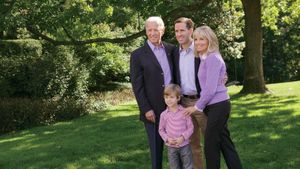Federal government departments are allowed to advertise on TikTok, even as security concerns linger about the popular social media platform. This decision has raised eyebrows, especially after Ottawa ordered the closure of TikTok's Canadian offices, citing potential national security risks. The government has been vocal about its apprehensions, with the Canadian Security Intelligence Service (CSIS) highlighting TikTok as a vector for data security threats and privacy violations. Despite these flags being raised, the federal agencies have not been prohibited from utilizing TikTok for advertising purposes.
Some experts are puzzled by this contradiction. Brett Caraway, an associate professor at the University of Toronto, pointed out the mixed messaging from Ottawa. He suggested, "[Ottawa's] implying it's safe enough for them to use, yet they're warning the public to be cautious. The messaging here is just going in opposite directions." David Shipley, CEO of Beauceron Security, emphasized the need for clarity, noting, "I think it's ridiculous — pick a lane." Shipley reasoned, if the government has concerns about TikTok's security, it should cease its operations with the platform entirely.
The Privy Council Office’s spokesperson clarified the government’s stance on TikTok advertising. Although no current campaigns are running on the app, the door remains open for future advertising efforts. Pierre-Alain Bujold stated, "We will continue to evaluate where we run ads based on our target audiences." He added running ads on TikTok raises no security issues for government devices, pointing out those ads are managed by independent agencies.
Interestingly, just earlier this year, amid rising scrutiny, various government departments utilized the platform for campaigns. Public Safety Canada launched ads focusing on emergency preparedness, highlighting the risk of misinformation spreading on social media. The Communications Security Establishment pivoted to educate Canadians on identifying online disinformation, underlining the necessity of engagement on platforms like TikTok, where such feeding grounds of misinformation thrive.
Health Canada also made its mark on TikTok with campaigns covering public health topics, including mental health initiative and resources for quitting smoking, recognizing TikTok’s reach among younger demographics. Reports indicated federal expenditures on TikTok ads nearing $1.1 million during 2023, showing notable investments akin to Twitter's advertising spending and trailing significantly behind platforms like Facebook and Instagram.
Despite these efforts, Canadians still face restrictions when accessing TikTok through government-issued devices. The government has eyeing significant national security interests, leading to the ban of TikTok from all government devices voiced by Canada’s cabinet minister François-Philippe Champagne. The closure of TikTok’s Canadian offices seems to contradict the continued use of the app by the very departments warning against it, leaving many Canadians bewildered. While officials strive to maintain operational effectiveness, the strategy for public engagement grows increasingly convoluted.
CSIS director David Vigneault has voiced concerns earlier this year concerning the potential ability of the Chinese government to leverage TikTok for surveillance on Canadian citizens. The crux of the worry stems from TikTok's parent company, Bytedance, which operates based out of Beijing. Chinese law obligates companies to assist local intelligence-gathering efforts, elevates questions surrounding user data safety under these jurisdictions.
Given the current political climate, TikTok remains hotly contested. The app has faced considerable scrutiny globally, not just from Canada. Various countries have enacted bans or restrictions on its use by government entities, consistent with similar apprehensions echoing from organizations like CSIS. Responding to these allegations, TikTok maintains it has never shared user data with the Chinese government and asserted its intent to challenge the Canadian government’s order legally.
Still, even with heightened discussions around privacy and security, TikTok's compelling pull among young users complicates these debates. Its unrestricted ad access may fall under pragmatic conclusions — the need for government departments to connect with younger audiences unattainable through conventional channels. The federal government’s TikTok advertising strategy emphasizes adaptability, indicating, "if it works, we’ll use it," even amid underlying security doubts.
Calls for increased transparency have crescendoed from experts who suggest Ottawa must disclose more information surrounding its decisions concerning TikTok’s operations and public presence. An observable gap exists between operational standards applied to government officials and how the public interfaces with these increasing technologically mediated communications.
Looking forward, as investigations continue through the Office of the Privacy Commissioner, Canadians remain vigilant yet confused. An extensive examination of TikTok’s policies and practices sparks curiosity about how the platform’s operations affect everyday Canadians. The question remains: can user data truly be safeguarded, and should government entities continue to rely on its reach for communication?



